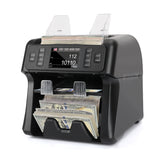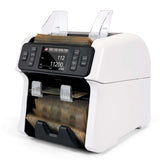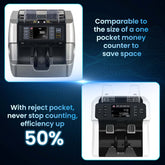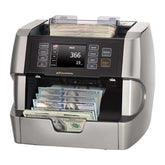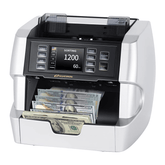10 Cash Handling Mistakes That Are Costing Your Business Big-Time
Busy retail outlets and quick-service businesses receive the bulk of cash. They get busier during specific hours and the cash handling job becomes more challenging.
Some common cash handling mistakes cause loss of profits and eventually lead to the failure of your business.
Let’s find out the top 10 mistakes businesses make in cash handling, how you can avoid them, and some tips on the best practices.
1. You Don’t Have a Cash Handling Plan
If you think a cashier’s job at your busy retail store counter is just to count bills, think again. You need a strategic plan for effective cash handling even for a large cash influx.
Your plan should include all the key points for your cash management tasks including the right employees, equipment, duty segregation, the standard operating procedures (SOPs), and so on.
2. You Do Not Train Your Cashiers
A common mistake businesses make is to leave their cashiers untrained for the job. Even when you hire experienced cashiers they will need training to familiarize themselves with your company policies and culture.
By taking a proactive approach, you can set your staff for success. The training should start by explaining the company policies, rules, and procedures.
Try explaining the rules to your newly hired employees, especially those with no prior job experience. The training should also include hands-on experience with your cash counting machines.
3. You Have Got Obsolete Equipment
Your qualified cashiers will find their hands tied if your company is using obsolete cash counters. The situation will be worse if you think your cashiers can handle all the cash manually.
Many small and medium-sized businesses make the mistake of not investing in quality cash counting equipment. The price they pay in the long run weighs far more than the initial investment though.
4. You Make Mistakes In Cash Receiving and Payments
If you are running a busy business outlet like a retail store or a restaurant, your cashiers will remain under pressure of long queues and bulk cash inflows.
They are likely to make mistakes while exchanging cash with customers. They will also make mistakes when depositing that cash into safety vaults or bank accounts.
If setting up more cash counters isn’t feasible, install high-quality cash counting machines at your point-of-sales (POS) counters to ease the workload of your cashiers.
5. Your Common Mistakes In Cash Handling
Creating compliance controls like SOPs is one thing and getting effective results is another. Even experienced cashiers will make some common cash handling mistakes during peak business hours.
For instance, you have set up a standard practice to examine all $20 and above currency notes for counterfeit bill inspection by machine but your cashiers do not follow that during busy hours.
6. Mistakes in Cash Deposits
Another common mistake businesses make is to make cash deposits without setting up any policies or procedures. Many businesses lose cash during safety vaults or bank deposits.
You should segregate duties and assign clear roles for responsible personnel. Then, ensure moving the cash in the presence of authorized persons only. You’ll be better off counting bulk cash in a security room.
7. You Do Not Optimize The Cash Stock
It’s a good practice to move the bulk cash into the vault or bank account. However, like any other business, you’ll need to keep some hard cash for your operational expenses and customer services.
If you are a cash business, you must keep cash change at your disposal at any time. Also, if you make payments to your suppliers in cash, you’ll need to account for those payments.
8. You Haven’t Set Up The Takeover/Handover Procedures
The first step to making a smooth transition for your cashiers is to understand your peak hours. You must avoid any takeover/handover tasks during those hours.
Your business will lose money if you don’t have any procedures for shift changes. No one will take responsibility for any cash discrepancies.
9. Your Staff Makes Accounting Errors
Although cash handling mistakes usually come from cashiers, your accountants or finance managers can make accounting mistakes too.
It simply means any errors during the record-keeping process that affect your cash handling. These mistakes may come through double entries, omissions, inaccurate journaling, and reconciliation processes.
10. You Do Not Have Cash Audits
You are setting up for failure if you do not have cash audits. Like any other audit procedure, you must ensure the auditing of cash handling practices too.
The cash audit plan should include reviewing the internal controls for effectiveness, implementation, cashier performance, and corrective measures.
Tips to Improve Your Cash Handling Practices
The first tip before starting the list is to keep improving. Your staff will learn and improve if you follow the plan for the best cash handling practices.
1. Focus on Customer Services
While you invest all the energy in setting up a successful cash handling plan, you may lose focus on your customer service.
Remember, your business thrives only when your customers are happy. And an integral part of your customer service is to serve them well at cash counters.
2. Explain Procedures to Your Employees
While training your cashiers, explain the cash handling policies and procedures to all other employees too. It’s the collective responsibility of all employees to safeguard your business.
If your employees are unclear on anything, try explaining the procedures to them by demonstrating the best practices.
3. Set Up An Action Plan if Mistakes Happen
It doesn’t matter how hard you try, mistakes will happen. You need an action plan if anything goes wrong.
It will encourage your cashiers to speak up if anything does not go as planned. You’ll then be able to take corrective actions and set things back on track.
4. Monitor and Review Policies
An excellent way to protect your business interests is to keep improving. It means you’ll need a constant check on your policies and employees.
Wherever you need improvements, make changes and adapt to the requirements.
5. Seek Help From Professionals
Finally, if you are unsure about the cash handling best practices, seek help from professionals.
Part of the professional advice comes from the sellers of modern cash counting machines to ease the burden of your cashiers in a busy cash counter.
Similarly, you can seek advice from experienced cash managers, auditors, and finance managers to create an effective strategy for your business.

